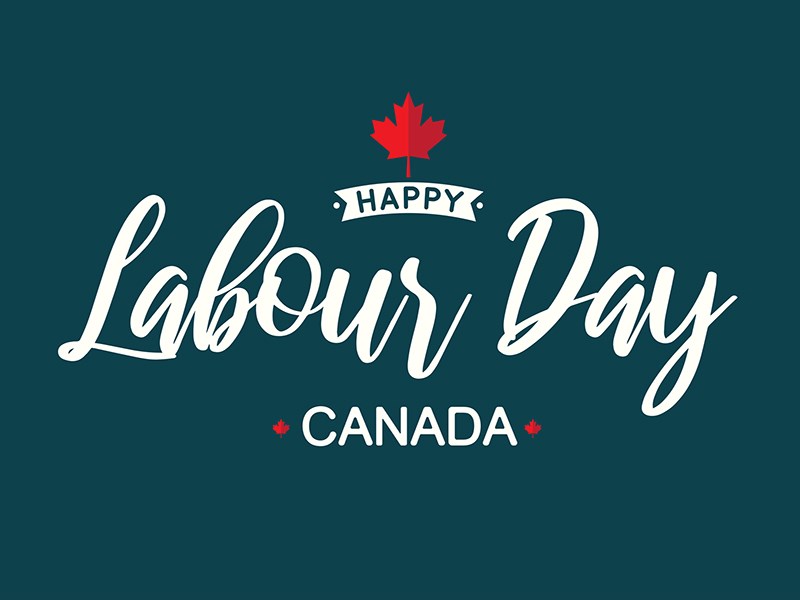Labour Day, when we celebrate social and economic achievements of the labour movement, is the most significant of all annual holidays when the conversation involves mental health and wellness, individual or collective.
Many dates in the year honour and celebrate the human spirit. Most religions have an especially commemorative day or time. Christianity celebrates Christmas; Ramadan or Hajj for followers of Islam; and Buddhism’s Vaisakha Puja all celebrate human spirituality.
The first Monday in September acknowledges and commemorates the labour movement’s positive impact on mental and physical well-being of individuals and society as a larger entity.
Somewhere around 1760, the first Industrial Revolution influenced people to trade the self-determination and sense of purpose in rural farming and fishing communities for work in new urban mechanized factories. Although it is thought the transition brought a better standard of living, it was a pivotal point in history which led toward isolation, imbalance and desperate inequality as populations moved from rural agricultural to urban industrial lifestyles.
Steam-engine-powered machinery set the pace of production and used child labour with 12 to 14 hour days as the norm. Early on in England and Scotland, two-thirds of workers in cotton mills were children. As late as 1900, industrial workers in America still worked 10 to 12 hour days, however, earned 20 to 40 per cent less than deemed needed for a decent life.
The industrial revolution promised opportunity for a better standard of living for everyone, yet initially, it was only a small elite class which amassed great wealth. Workers sweat and bled through 10 to 16 hour days in dangerous workplaces without fair compensation.
With the complete physical oppression of workers, mental health was, not surprisingly, not a consideration. The mantra of the industrialists and capitalists, in general, was profit had to override all other values, including human dignity and self-worth.
The labour movement was a reaction to these new extremes in society and an organized effort to create balance, healthy community, as well as fairness and equality for oppressed individuals and communities. Balance, community and positive self-identity are cornerstones of good mental health in the present day, more than 200 years after the industrial revolution.
These days, whether we like it or not, our self-identity, or our awareness of our own potential in life, is tightly enmeshed with the job or career we have. It’s an unavoidable entanglement.
When a human baby’s brain first starts to recognize words and their meaning, one of the first questions we ask is: what would you like to be when you grow up? The answer is usually something bright with heroic undertones like firefighter or doctor.
Decades later when that same human is an adult, the first question when introducing themselves in social situations is: “so, what do you do for a living?”
With our sense of self-worth and identity often wrapped so tightly around our occupation, the labour movement’s centuries long struggle to elevate the position of the worker in society, with higher wages and safer conditions, is put in lucid perceptions. The struggle for workers’ rights was, and is, a struggle for mental health and wellness for people in all parts of society.
If the janitor cleaning the hospital isn’t respected and compensated fairly and does his job poorly, the surgeon in the operating room cannot feel confident he will be successful. The labour movement fought for all workers to be treated with dignity and fairness to create healthy places where production and safety is optimized.
More than 200 years after early pioneers of the labour movement fought struggles like the eight-hour day movement with a slogan: “Eight hours labour, Eight hours recreation, Eight hours rest,” we sometimes take for granted their sacrifices, yet thoroughly enjoy the progress made.
The eight-hour day provided what might be the most important aspect of mental health and wellness: balance. There was equal time for work, recreation and rest.
Healthy communities, positive self-identity and balance in life and work are integral parts in constructing mental health and wellness individually and societally. Among other monumental advances in humanity’s journey, the selfless stoicism of the labour movement pushed for and won these basic parts of human mental wellness.
This Labour Day we celebrate the labour movement as a movement, sacrificing and succeeding in creating a society where mental and social health have a better chance to flourish than any time in human history.
Robert Skender is a Powell River freelance writer and health commentator.



